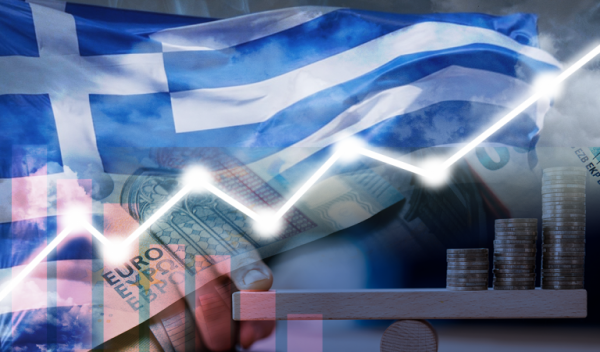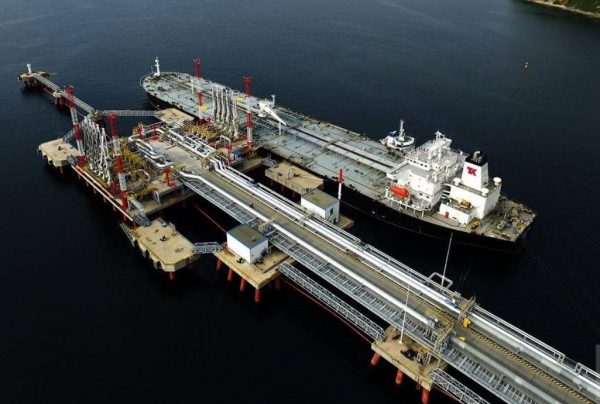
The word inflation dominates almost every recent economic analysis, commentary and opinion, with this element having emerged as the number 1 factor for decision-making by Central Banks and the course of recovery of the world economy.
The Federal Reserve and the ECB are monitoring the significant price increase.
A number of parameters have led to explosive price increases with analysts arguing over whether the phenomenon is temporary (as the Fed and the ECB insist) or whether it will last.
Strong demand growth, due to the rapid economic recovery, supply chain problems, price increases in key commodities due to extreme weather conditions, shortages of basic raw materials, but also low lending rates make up an explosive mix for prices.
The shadow of price increases is spreading over the Greek economy, causing concern in the financial staff.
For July, the price increases in the basket of Greek households showed their teeth as there were increases in basic goods and services, such as food, housing and transportation.
According to the Hellenic Statistical Authority, the comparison of the National General Consumer Price Index for July this year with the corresponding index last year resulted in an increase of 1.4% compared to a decrease of 1.8% in the respective comparison of 2020 with 2019. In comparison June 2021 showed a decrease of 1.4% compared to a decrease of 1.7% that occurred during the corresponding comparison of the previous year. The average index of the twelve months August 2020 – July 2021, compared to the corresponding Index of the twelve months August 2019 – July 2020, showed a decrease of 1.1% compared to a decrease of 0.4% recorded during the corresponding comparison of the twelve months August 2019 – July 2020 with the twelve months of August 2018 – July 2019.
The largest increases, compared to last year, in food prices by 1.7%were in lamb, goat, fresh fish, cheese, olive oil, other edible oils, fresh fruits, fresh vegetables. There was a sharp increase in housing (4.2%) due to rising prices for electricity, natural gas, heating oil, but also in Transport (5.8%) due to rising prices for fuel, new cars, tickets, passenger transport by plane . The picture is similar in the monthly increase as the prices in housing, transport and hotels and restaurants had the most significant increase. On the other hand, price reductions were mainly in the clothing and footwear sectors, communications, due to a reduction in prices mainly for telephone services (2.7%) and personal care items, and vehicle insurance premiums (1.2%).
Preliminary data for the euro area in July show that consumer prices rose by 2.2% this month, not only from 1.9% in June, but also from the 2% threshold set by the European Central Bank.
Consumer prices in the United States rose at a slower pace in July, but inflation remained at historically high levels amid continuing disruptions in the supply chain and strong demand for travel-related services as economic activity recovered.
In particular, according to official data released on Wednesday, the consumer price index rose on a monthly basis by 0.5% last month after rising 0.9% in June.
Compared to the corresponding month of last year, the CPI increased by 5.4%.
Structural inflation rose 4.3% year-on-year from 4.5% in June.
Latest News

Cost of Living: Why Greece’s 3% Inflation Is Raising Alarm
Greece appears to be in a more difficult position when it comes to price hikes, just as we enter the era of Trump’s tariffs.

Fitch Ratings Upgrades the Four Greek Systemic Banks
NBG’s upgrade reflects the bank’s ongoing improvements in its credit profile, Fitch notes in its report, including strong profitability, a reduction in non-performing exposures (NPEs), and lower credit losses

Trump to Announce Sweeping New Tariffs Wednesday, Global Retaliation Expected
With Trump's announcement just hours away, markets, businesses, and foreign governments are bracing for the fallout of one of the most aggressive shifts in U.S. trade policy in decades.

Inflation in Greece at 3.1% in March, Eurostat Reports
Average inflation in the eurozone settled at 2.2%, compared to 2.3% in February

Greece’s Unemployment Rate Drops to 8.6% in February
Despite the overall decline, unemployment remains higher among women and young people.

Jerry Kalogiratos Highlights Key Role of Energy Transition and Data Demand in LNG Outlook
Energy transition and the prospects of LNG were discussed at Capital Link’s 19th Annual International Maritime Forum, during a panel discussion with Jerry Kalogiratos (Capital Clean Energy Carriers Corp.)

Santorini Safe and Ready for a Dynamic Tourism Season
Authenticity, cultural heritage, and genuine experiences at the center of Santorini's new promotional campaign

Electricity Bills: Greece Announces Reduced Tariffs Schedule
Greece will now offer lower electricity rates between 11:00-15:00 and 02:00-04:00

Chevron Confirms Eyeing Natural Gas Exploration South of Crete
Chevron recently declared its intent to explore a third area, south of the Peloponnese.

Evangelos Marinakis: A time of change from which shipping can benefit
Speaking at the 19th Annual Capital Link International Shipping Forum Evangelos Marinakis stressed the challenges that shipping faces today












![Τουρκία: Μεγάλες βλέψεις για παραγωγή ηλεκτρικών οχημάτων [γράφημα]](https://www.ot.gr/wp-content/uploads/2025/03/ot_turkish_autos-90x90.png)











![ΕΛΣΤΑΤ: Αυξήθηκε η οικοδομική δραστηριότητα κατά 15,6% το Δεκέμβριο [πίνακες]](https://www.ot.gr/wp-content/uploads/2025/03/DSC9655-2-1024x569-1-90x90.jpg)

















 Αριθμός Πιστοποίησης
Αριθμός Πιστοποίησης